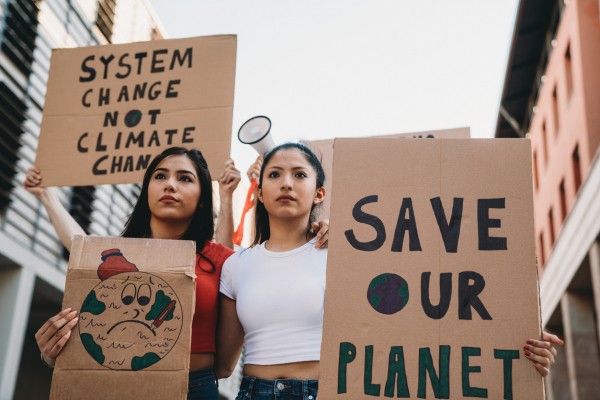Latino and ‘MillZ’ Views on Climate Change
While attitudes about climate change tend to be sharply divided along partisan lines, new research from the UMD Department of Government and Politics looks at the issue from the perspective of two social identities in the United States: Latinos and members of “MillZ”—a term researchers use to describe young adults categorized as members of the Millennial Generation or Generation Z.
To explore the interplay of Latino ethnicity and MillZ identities, associate professor Stella Rouse and co-author Ashley Ross from Texas A&M University at Galveston, conducted an original national survey of 1,529 respondents in late 2019. Participants were asked about the personal importance of climate change and how strongly they affiliated with either group identity.
Results, published earlier this month in the journal Political Behavior, show that Latino and MillZ identities are both associated with heightened climate change concern and that strong attachment to one identity is sufficient to induce concern even when attachment to the other is weak.
“The stakes are high for both of these groups on the issue of climate change,” said Rouse, director of the Center for Democracy and Civic Engagement at UMD. “Latinos have greater health and economic problems related to the environment, and young people will disproportionately bear the burden of climate change due to current environmental behavior and policies.”
The Millennial Generation, which includes people born between 1981 and 1996, is now the largest age cohort in the U.S. Nearly half (46%) of Latinos are either Millennials or part of Generation Z, which encompasses Americans born after 1996 and who constitute the youngest group of voters.
“Millennials and Gen-Zers are the most diverse generations in U.S. history and Latinos disproportionately comprise a large percentage of both groups,” said Rouse, author of the book The Politics of Millennials. “These findings point to the importance of examining multiple and overlapping social identities beyond simple party affiliation in order to better comprehend factors that influence political attitudes among the American electorate.”
Published on Tue, 10/27/2020 - 10:19


